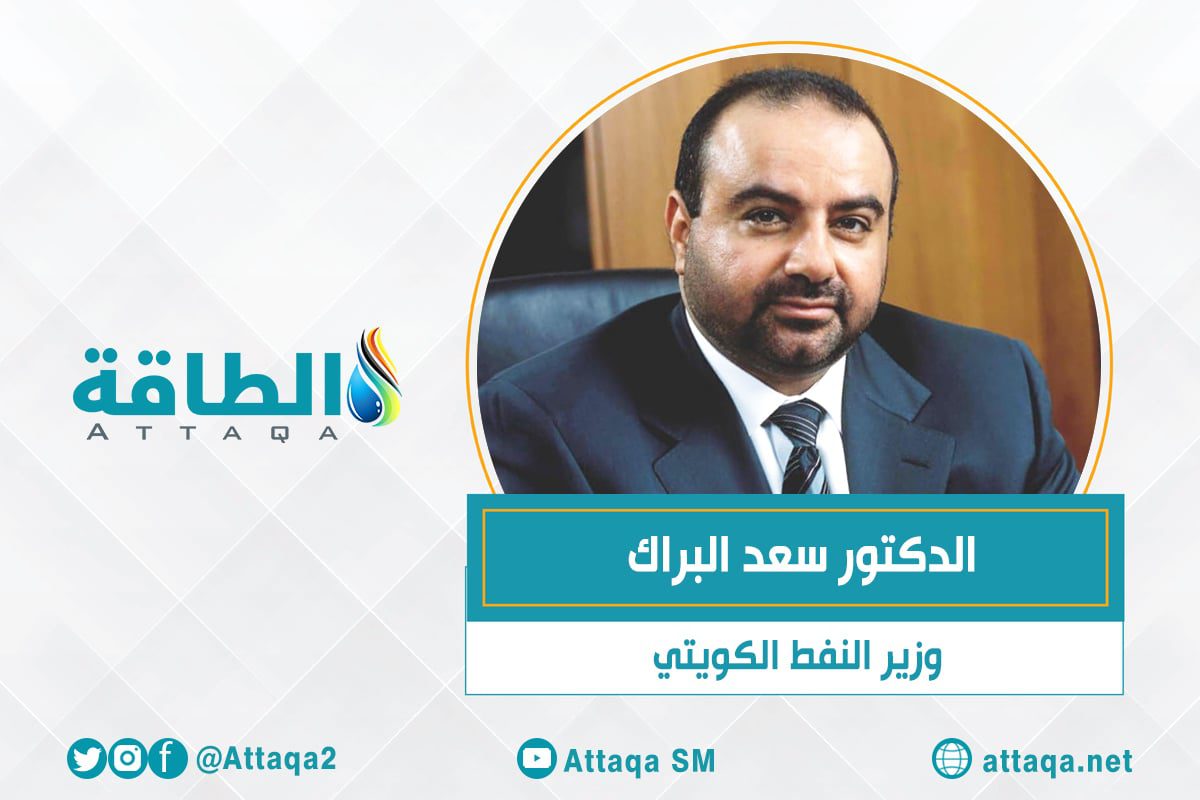On Sunday, July 9, Kuwaiti Oil Minister Saad Al-Barrak affirmed the exclusive right of Kuwait and Saudi Arabia in the offshore Dorra field, and that Iran’s rights in the field depend on the demarcation of borders.
Al-Barrak said that the declaration of the right of Saudi Arabia and Kuwait in the offshore field was based on the demarcation of the official borders as an international agreement, stressing that the position of the two countries is one, and until this moment this is an exclusive right for Kuwait and Saudi Arabia in the field, according to his statements during an interview with the Saudi Al-Ekhbariya channel, which was viewed by the specialized energy platform.
He added, “Whoever has a claim must start demarcating the borders, and if he has a right, he will take it in accordance with the rules of international law and the considerations adopted in this field.”
negotiations with Iran
The Kuwaiti Minister of Oil said that the Iranian side must enter into the process of demarcating its borders, and that it be approved internationally in accordance with the rules of international law, stressing that negotiations will not begin until after the border demarcation is resolved.
He continued, “There is no room for negotiations on these issues except after demarcating the borders. Rights depend on the borders. The issue is that simple.”
Al-Barrak clarified that the Iranian side did not issue any statements in response to the Saudi and Kuwaiti statements.
Impasse
The Kuwaiti Oil Minister said that the issue of the Al-Durra field is clear, while the issue is not clear to the other party – referring to Iran – and he has allegations that are not based on a clear demarcation of the maritime borders.
And he went on to explain: “With regard to Kuwait and Saudi Arabia, we are one team, and we will move forward with planning and projects to develop the Dorra field for the benefit of both countries.”
He stressed that there is a full understanding between Kuwait and Saudi Arabia on the Dorra field, indicating that the two parties have signed all the necessary agreements.
On the other hand, Al-Barrak attributed the delay in developing the Dorra field since the 2019 agreement to the Corona pandemic, and its impact on the economy. This led to a change in priorities, saying: “But after that, the dialogue did not stop, and we are now ready to move forward with the divided area and the new arrangements that the two parties settled on.”
joint ownership
The Kuwaiti Oil Minister’s statements came after the Saudi Foreign Ministry confirmed ownership of the natural resources in the divided submerged area. Among them is the Al-Durra field, which is jointly owned by Saudi Arabia and Kuwait only.
Saudi Arabia renewed its previous calls for the Iranian side to start negotiations to demarcate the eastern border of the region divided between the two countries. As one negotiating party against the Iranian side, according to international law.
On Monday, July 3, the Iranian allegations related to the Dorra field and the measures it took were met with a categorical Kuwaiti rejection.
Minister Al-Barrak said, in a statement: “Following the statement of the Ministry of Foreign Affairs on the same issue, we totally reject the allegations and the Iranian measures to be taken around the field.”
Saudi-Iranian relations
Iranian media and some officials in Iran claim that the Dorra field is one of the Iranian strategic fields shared with the neutral zone between Kuwait and Saudi Arabia, according to an article by senior advisor on foreign policy and energy geopolitics Omoud Shukri, published by the specialized energy platform.
In his opinion, the recent dispute between Iran, Saudi Arabia and Kuwait over the Dorra field is the first issue that could have a negative impact on the relationship between Tehran and Riyadh.
He said the disputes over the field illustrate the difficulties and complexities associated with the regionally shared oil and gas resources.
He continued, “Sanctions that have slowed investment and technological innovation are partly to blame for hampering Iran’s ability to harness its oil and gas wealth.”
Despite the improvement in relations between Iran and Saudi Arabia; There is more work to be done to settle the dispute over the field; Including deciding on maritime borders and the fair division of shares.
All interested parties may benefit from cooperation and collaborative development of the field; This will also help stabilize energy supplies in the region.
Despite international tensions and divergent interests; Reaching a comprehensive agreement remains a major hurdle.
Unlocking the full potential of the region’s shared oil and gas resources requires continuous communication, diplomatic efforts, and a sincere desire to develop solutions that benefit all parties.

Leave a Reply